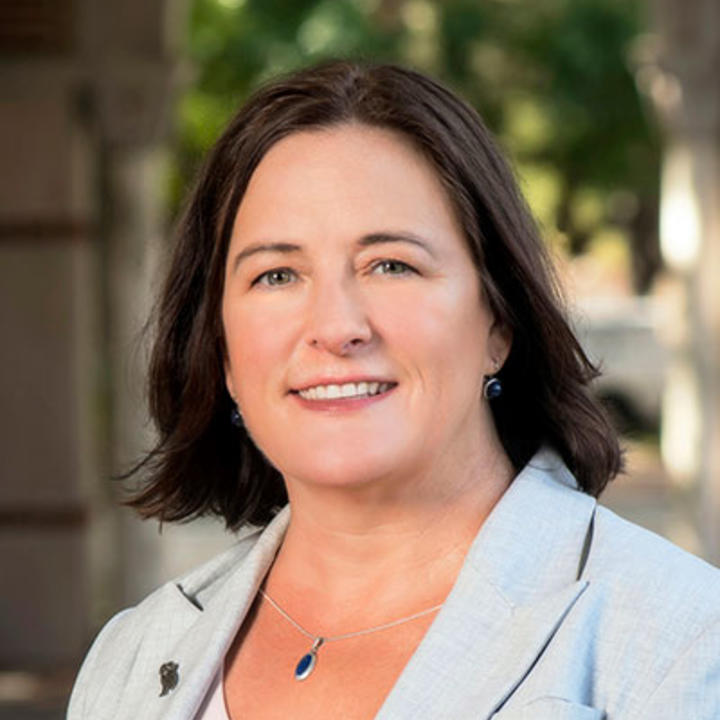
Finance
Featured Research
"Classic economics teaches that competition is a panacea to market ills. In my research, I show that competition actually worsens the tendency of institutions to make products and prices more complex. A second surprising finding is that small-scale education for consumers may actually make things worse. This is because providers may respond to educational efforts by obfuscating prices or other product attributes in a different way." - Professor Bruce Carlin
Held annually in September, the Lone Star Finance Conference is a junior faculty-led research conference that brings finance scholars from around Texas together to discuss and advance finance research. The 2023 conference was hosted by Rice Business and organized by professors Tarik Umar, Kunal Sachdeva, Stephanie Johnson and David Zhang.
The finance area and its curriculum at Rice Business reflects the broad interests, experience and expertise of our faculty, ranging from basic financial management to more technical subjects such as options and other derivatives, and financial modeling.
The exceptional accessibility of the finance faculty is also the hallmark of our new doctoral program in finance, debuting in the fall of 2010, which aims to provide students with the knowledge and skills necessary to become first rate scholars in financial economics. The essence of the finance doctoral program is the opportunity to learn from and work with a top quality faculty on a broad range of topics in modern finance.
Our faculty's research specialties include all major areas, from corporate financial policies to issues in investments and mathematical finance, with their papers consistently published in the top academic journals of the finance profession. Visit Rice Business Wisdom for examples of our finance faculty's peer-reviewed business research presented in a compelling, quick-to-read package.
Members of our faculty also nurture skills and traits that are critical to success for tomorrow’s leaders. In every course, students have an opportunity to work one-on-one with an accessible, involved and energetic member of the faculty, who believes that academic research and current industry knowledge are as critical as textbooks to a student’s education.
Rice Business is consistently recognized for excellence in Finance. We are proud to be ranked #3 Best MBA Program in Finance by Princeton Review this year. There's never been a better time to connect with the finance program at Rice.
Sample Finance Electives
Below are some courses that cover a broad range of topics in finance.
-
Introduction to the valuation and financing of Energy Projects. We will learn from industry professionals about various types of energy projects their firms have undertaken, with a special emphasis on understanding how to evaluate the risks involved and the issues involved in getting the financing for these projects.
-
The course is based on the principle that one cannot understand commodity markets without a good grasp of the technology and physical infrastructure behind production, transportation, and distribution of energy commodities and linkages between different segments of the energy complex. The review of the industry infrastructure will be followed by discussion of the institutional framework of the energy markets in the US and other developed economies, including discussion of the different types of participating business entities, types of transactions and regulatory infrastructure. The course will be divided into three groups of lectures, covering the natural gas industry, power and coal business and oil / refined products markets, with an additional shorter lecture on regulatory issues.
-
The course offers a review of the US energy markets across the entire commodity spectrum: natural gas, oil and refined products, electricity, renewables and renewable energy credits, coal and emission allowances. Some aspects of the international energy markets will be covered as well; to the extent the material is critical to understanding of the US energy business. The class is recommended to anyone contemplating a career in energy trading and marketing, energy risk management, or regulatory institutions.
-
Introduction to household financial decision-making and consumer financial products. We will use rational and behavioral models to understand how financial products serve consumers’ needs with respect to managing risk, borrowing, investing, and moving funds. We will discuss how technology, data, and regulation are affecting the consumer finance sector.
-
This course provides an introduction to quantitative equity management. Quantitative management means trading on signals that can be constructed and tested on large panels of stocks. Many different data sources are used to generate trading signals. In this course, we illustrate concepts using predictors formed from corporate fundamentals, past prices, analyst forecasts, and earnings surprises. We discuss the full process of quantitative management, from preliminary analysis of signals to training models to backtesting and strategy assessment.
-
An introduction to forward, futures, option, and swap contracts, including the basic valuation principles, the use of these contracts for hedging financial risk, and an analysis of option-like investment decisions. Recommended for finance students.
-
Students gain hands on experience with many aspects of investment management by managing the M.A. Wright Fund, a “live” stock portfolio of endowment assets. While the emphasis is on individual stock analysis, the course also covers quantitative and qualitative sector analysis, and portfolio-level risk and return analysis.
-
Review of classic investment theory, with emphasis on measuring and managing investment risk and return. Includes the development of modern portfolio theory and asset pricing models, an introduction to option and futures contracts, market efficiency, and stock valuation. Recommended for most finance students.
-
This course examines the investment, financing, and related policy decisions faced by a corporate financial officer. We will study several frameworks for evaluating corporate projects that expand on the capital budgeting issues developed in the core finance course. In particular, we will develop techniques for assessing projects with inherent flexibility (real options). We will also examine the interaction between investment and financing decisions, and how capital structure affects firm value. The final part of the course examines other important topics in corporate finance such as payout policy, risk management, and corporate governance.
-
Study of the theory and practice of the fundamental principles in finance, emphasizing hands-on experience with a wide range of corporate finance and investment applications. The course provides extensive opportunity to implement finance theory at a practical level and to develop advanced analytical spreadsheet expertise, including financial statement forecasting, regression analysis, Monte Carlo simulation, and portfolio optimization.
-
Study of fixed income securities and markets in the U.S. and abroad, with an emphasis on the term structure of interest rates and the pricing of fixed income securities, derivatives, and portfolios. Include Treasury, Corporate Debt, and Mortgage-Backed Securities.
-
The course examines the merger and acquisition process from the perspectives of buyers and sellers. Attention is paid to the internal (make) versus external (buy) growth opportunities and their value consequences. The course also analyzes the M&A transaction process through the study of cases. An additional focus will be in the interaction of strategic planning, value planning, financial strategies, and investment decisions.
-
We consider the financial services industry in an era of rapid disruption. We analyze how firms like Square, PayPal, Stripe, Lending Club, OnDeck or Robinhood are disrupting the value chain in financial services. We seek to understand what drives the development of disruptive platforms and why incumbents are missing out on these opportunities. We consider funding sources; competition from Asian fintech dragons as they redefine financial services through e-commerce and social payments; and the democratizing of access. Finally, we consider the next wave of technologies poised to accelerate the disruption including blockchain, cryptocurrencies, and robotics. After completing this course, you will understand how financial technology disruptors are capturing revenue pools of incumbent firms in payments, consumer and small business lending, wealth management, and advisory services.
-
This class covers analytical techniques related to pricing financial derivatives used extensively in the energy industry, including European, American, Asian, binary and spread options on forwards. In addition, the class will cover applications of financial derivatives in market and credit risk management in the energy industry.
-
This course has two primary objectives: 1) provide an overview of the fundamental frameworks commonly used in the Real Estate Industry and 2) provide a detailed understanding of the discounted cash flow (DCF) model, the primary quantitative financial decision tool used in the real estate industry. Students learn how to build robust DCF models incorporating important features and conventions for application to real estate assets.
-
This course describes the feasibility analysis of real estate developments. Topics covered are the development process, market studies, financial feasibility, and joint ventures for the primary real estate property types.
-
This course introduces students to the methods used in analyzing commercial real estate space markets. The course explores data provided by research organizations to analyze the current states of the market for each different asset type (Retail, Office , Industrial, Hospitality and Residential).
-
Large language models can perform financial analysis previously done in spreadsheets and even exceed the capabilities of spreadsheets. This course provides a hands-on learning experience in using ChatGPT and python plug-ins to acquire data, perform analysis, create charts and tables, and prepare reports on numerous financial topics.
-
Independent study or directed reading on an approved project under faculty supervision. Contact MBA program office for application information. No more than 3 credit hours of independent study will count towards graduation unless approved by the Jones School Academic Standard Committee.
-
In this course students learn about sectors in the energy transition, renewable power, battery storage, carbon capture, hydrogen and renewable fuels sectors from an investor’s point of view. Acting as a private equity firm, student teams establish an investment thesis for which sectors to deploy capital and pitch their fund to a mock board of limited partners.
-
This course is about learning to think like a game theorist and developing a systematic way to evaluate strategic problems. Emphasis is on real-world applications and in-class business exercises.
-
Study of the theory and practice of the fundamental principles in finance, emphasizing hands-on experience with a wide range of corporate finance and investment applications. The course provides extensive opportunity to implement finance theory at a practical level and to develop advanced analytical spreadsheet expertise, including financial statement forecasting, regression analysis, Monte Carlo simulation, and portfolio optimization.
-
This seminar focuses on the design, governance, transformation, and democratic accountability of public sector organizations. Drawing on domestic and foreign case studies from the private, public, and social sectors in domains reaching well beyond K-12 education, but always coming back to that sphere, students evaluate and apply a number of models for how institutions define objectives and measure success, produce and deploy knowledge, govern internal operations, supervise dispersed street-level staffs, and make themselves accountable to key stakeholders and the public at large. Students explore a number of tools modem organizations use for these purposes, including design thinking, quantitative analysis, qualitative evaluation, balanced scorecards, team-based problem-solving structures, and cooperative "regimes" of public and private actors.
-
This practicum is composed of two components, classroom-based skills training and a hands-on consulting experience. In the skills training portion of the course, students are trained in the competencies required for success as managers and leaders of modem public- and social-sector organizations. Among the complex skills students acquire are working effectively in interdisciplinary professional teams, managing projects to specified outcomes, adaptable problem solving in the face of ambiguous and changing organizational needs, formulating team-based solutions for multi-dimensional problems (legal, operational, etc.), and designing practical analytic approaches to evaluating solutions including developing and testing hypotheses. Students then apply these skills directly in a consulting experience. Students, working in multi-disciplinary teams, support education organizations in thinking through some of their most challenging legal, policy, strategic, design, governance, and implementation issues and provide actionable solutions. While providing client organizations with important short-term support and long-term access to exceptional professional talent, the projects give students rich opportunities to test concepts encountered in the class; unique insight into what a career in public-education leadership looks like; and important career-entry opportunities and a valuable network in the education sector.


Faculty research applied in the classroom.



































